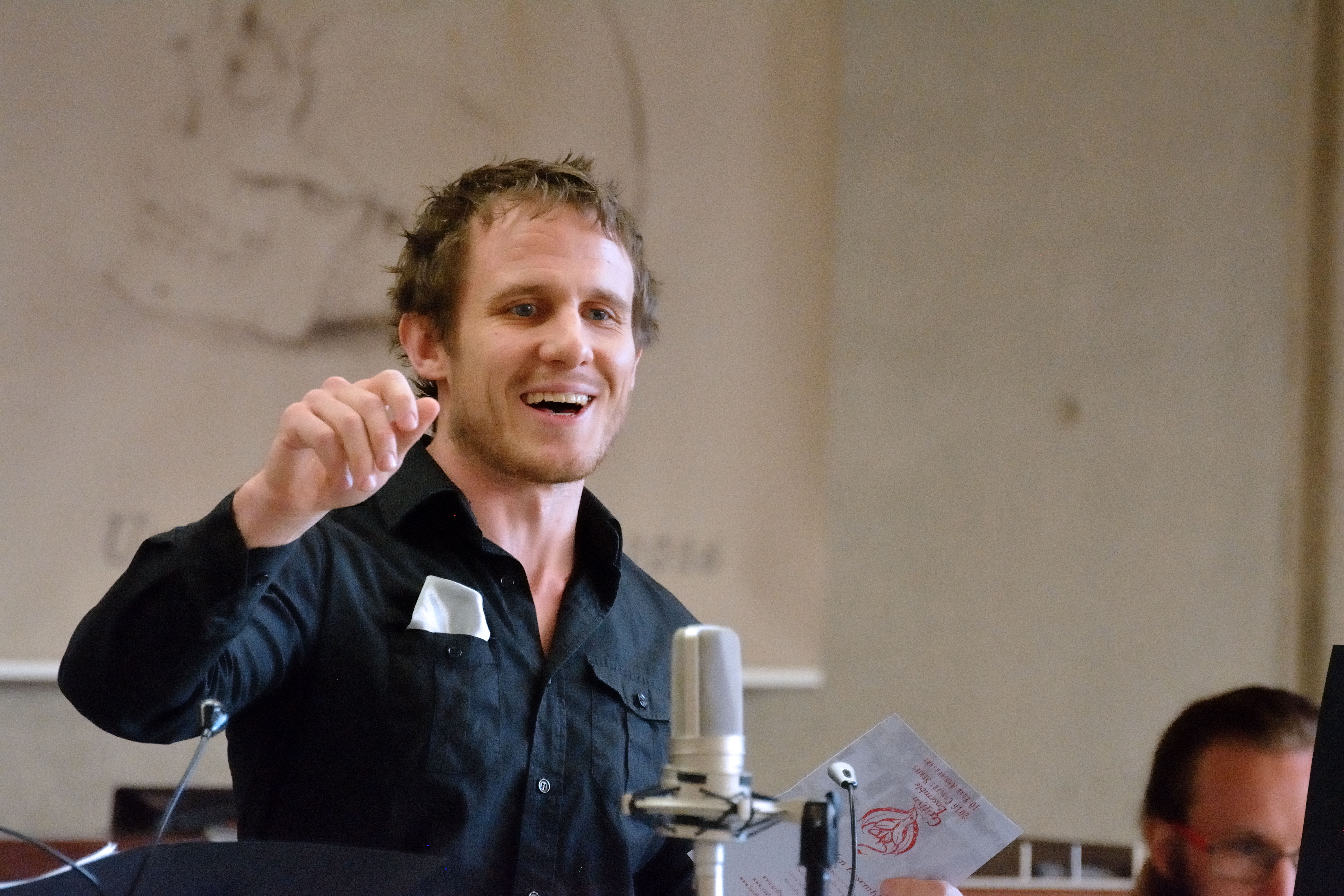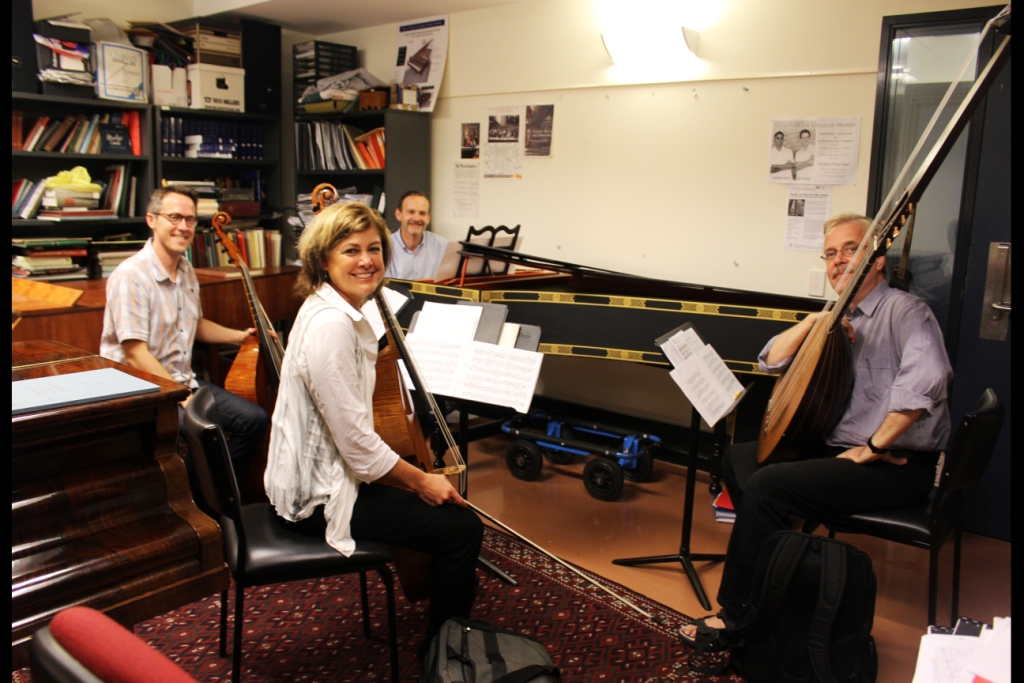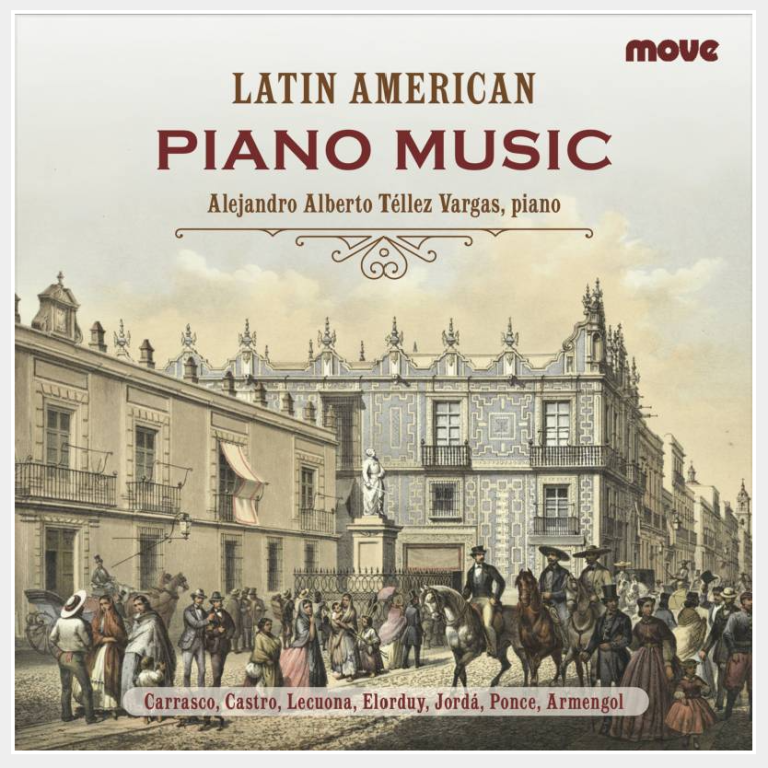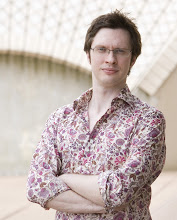Kicking Goals In Music Education
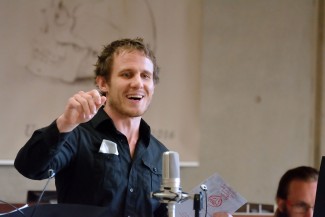
“It was the football boots that drew them in” says Michael Sollis. “The moment we drew their attention to my old football boots on the stage, they were completely engaged and listening.” I am speaking with Michael Sollis, newly appointed inaugural Artistic Director of Education at Musica Viva’s Music in Schools education programme and Sollis is describing one of his game plans for engaging students who might be disinterested in music. So far, he says, the strategy has been successful.
Born in Canberra in 1985, Michael Sollis is a composer and a mandolin player and has worked with Musica Viva as its ACT manager since 2008. As well, he is director of the Griffyn Ensemble. “We arrange theatrical chamber music performances that are very anthropological and exploratory in nature” he explains,” in collaboration with astronomers, Rugby League clubs, dancers, artists and many other diverse people. ”
Now, Sollis has been charged with overseeing and developing the investment that Musica Viva has made with its Musica Viva In Schools programme which, since its inception 35 years ago, has become the largest external provider of music education programmes in classrooms around the nation. In 2015, the musicians of Musica Viva In Schools travelled over 120,000 kilometres delivering music education programmes to over 260,000 students holding 1,700 concerts, workshops and residencies. The company also provided training to around 10,000 teachers.
In the course of his work in arts education, Sollis has had the opportunity to engage at many levels of the ACT community. “For the last 10 years or so I have taught in classrooms delivering early childhood music programmes as well as lecturing in composition at the ANU School of Music. Over the last decade I have also been involved in running the Young Music Society which runs a holiday programmes for over 400 kids.”
” To have someone who can over see this programme who is eclectic, who comes from a musician’s perspective and who is also an educator yet not a teacher, will ensure that the programme is as viable and flexible and adaptable as possible” he says. ” There is space for organisations like Musica Viva to start from a musical perspective and develop it.”
Sollis has a bold vision which he articulates from the heart. “What is important is that every child in Australia should have the right to experience live music – and at the moment they don’t. There are kids who live in areas that are difficult to get in terms of transport or who come from demographic areas of Australia who don’t have the resources to see live music. There is certainly work to do in that area and this appointment signals a great opportunity.”
“It is important not to overplay what Music Viva can achieve but also not to underplay that” comments Sollis. Music in Schools doesn’t deliver a programme to teach children how to play a musical instrument, but gives children across the nation the chance to hear a live music performance possibly for the first time and get up close to the musicians and their instruments. Sollis goes on to elaborate why this aspect of education is so important. “The benefits of being exposed to live music and igniting creativity go beyond learning an instrument. It goes to whatever professional and personal agendas they will experience for the rest of their lives. Music offers the unique ability for an individual to interpret the world in different ways and one of the things I hope to achieve is that every time we visit a school we give those children the best possible opportunity for their imaginations to be ignited, for them to be inspired and to pursue their love of music, whether that’s learning an instrument or going out and buying a bunch of CDs.”
The qualitative benefits are evident but quantitatively hard to define. Some experiences cannot be measured; other changes only become evident in the long-term and for Sollis, the long-term is as important as the short. “We see 250,000 kids every year and if we can inspire every single one of those kids to discover, transform or channel their creativity, you’re not only providing a platform for their future musical enterprises but potentially transforming the culture in terms of how we creatively think.”
Sollis also observes the critical point that the experience of listening to music at a concert extends way beyond the individual. “It creates an understanding of what it means to be in an audience and what it means to enjoy music in a social setting. Music is community building and we will be looking to instil these values across the programme – it’s very exciting!”
Sollis’ views are founded in his own life experiences. He recalls childhood friends who regretted not having the opportunity to learn music, being “told by teachers that they were not good enough or they couldn’t sing. These stories exist across Australia,” he says “and they are not restricted to one class of person. You can see the damage that has been done in terms of how these people think they can experience music. ”
So where do the rugby boots fit in and what is their connection with music? The Sollis family has been heavily involved in sport. “My father is pivotal in Rugby League junior development programmes in the Riverina and the ACT and set up programmes for schools and platforms in education for emerging players. As a child, I was acutely aware of the importance of junior development and was very much involved in these programmes, travelling around the Riverina doing coaching clinics in regional areas. Yet, I was also writing music from the age of 4 or 5, always in the backyard making up songs.”
“In terms of building pathways for young people, I see a lot of similarities between sport and the arts – they both have a large community and rely on grass-roots culture but also have an elite pinnacle which is primarily a ticketed event; they both have the power to provide meaning in peoples’ lives, especially young people. I couldn’t think of a more similar discipline to the arts. There’s a lot that can be learned from each and one of the things I’ve encouraged is a cross fertilisation between sport and the arts. I’d like to debunk the myth that you can’t engage in both.”
Working with a wide cross-section of young people whose musical preferences are as catholic as their communities, Sollis is careful in defining artistic ideals. “Musica Viva already presents a very diverse schools programme which includes classical music as well as world music and jazz. I am very aware not to rule anything in or anything out because genres can be redefined and we live in world where labels can be irrelevant. Instead, what is important is the quality of the performance and making sure there is integrity to it.”
“My goal is to use Musica Viva as a platform to ensure that every school child in Australia realises their right to access the highest quality live music performance, to experience and be inspired by live music and to purse to their own musical ideals whatever they may be.”
Shamistha de Soysa for SoundsLikeSydney©

